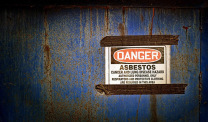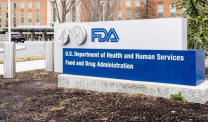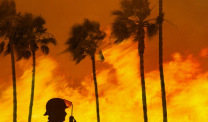New Report Details 9/11 Health Effects on FDNY Firefighters
Asbestos Exposure & BansWritten by Sean Marchese, MS, RN | Edited By Walter Pacheco
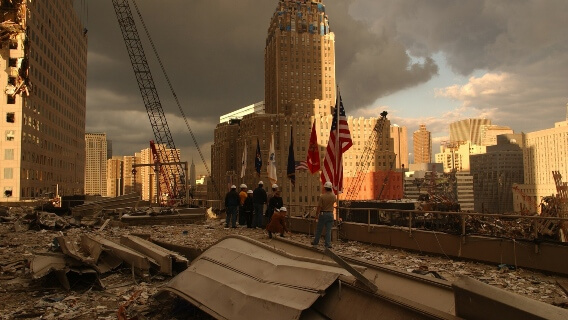
A recent report from the Fire Department of New York World Trade Center Health Program outlines the 9/11-related health effects firefighters are dealing with 20 years later.
Approximately 410,000 first responders spent the days and weeks after 9/11 inhaling toxic materials as they helped save lives from the collapse of the Twin Towers. Almost 3,000 people died on Sept. 11, 2001, but in the 20 years since, another 4,343 survivors have died due to related health effects.
FDNY has felt the impact of delayed illness, as well. While 343 FDNY firefighters died on 9/11, another 254 have died since then from 9/11-related diseases.
“We will never forget their sacrifices, and we will never abandon them,” New York City Mayor Bill de Blasio stated in the report.
Nearly 75% of 9/11 Firefighters Suffering from Illness
Approximately 15,200 firefighters, paramedics and other first responders are part of the FDNY World Trade Center Health Program. Almost 75% of those members, more than 11,300, have been diagnosed with an illness recognized by the WTC Health Program.
The federal program recognizes chronic illnesses ranging from less severe respiratory issues to more advanced cases, including gastroesophageal reflux, or GERD, and several cancers. Symptoms such as cough or shortness of breath are often the first signs of asbestos exposure.
GERD affects nearly half of these 9/11 FDNY firefighters. The condition, which results in the upward flow of stomach acid into the esophagus, is caused by inhaling large amounts of toxic dust in the aftermath of 9/11.
Debbie Zinn, a volunteer at Ground Zero who helped with recovery, said she’s had chronic nasal and respiratory issues, PTSD, GERD and other physical issues since the World Trade Center attacks.
“There are other physical issues that are harder to certify, like nerve damage and herniated disks. But honestly, my stuff is nothing compared to some of my friends,” Zinn told The Mesothelioma Center at Asbestos.com.
Another 40% of FDNY members now suffer from upper or lower respiratory complications following exposure to legacy asbestos, concrete dust, crushed glass and other toxic materials at Ground Zero. The rubble exposed about 410,000 to 525,000 people to carcinogens in the air, which lingered for months following the WTC collapse.
The WTC Health Program report noted that 3,097 FDNY members had at least one cancer diagnosis related to 9/11, and hundreds were diagnosed with more than one cancer.
Dr. Raja Flores, a thoracic surgeon at Mount Sinai Hospital in New York City, has treated several survivors from the World Trade Center attacks.
“The sadness of watching these heroes die from diseases that slowly torture and kill can be almost unbearable,” Flores told The Mesothelioma Center at Asbestos.com. “First responders and survivors are developing cancers and illnesses as a result of the 9/11 attacks that can utterly destroy someone’s quality of life.”
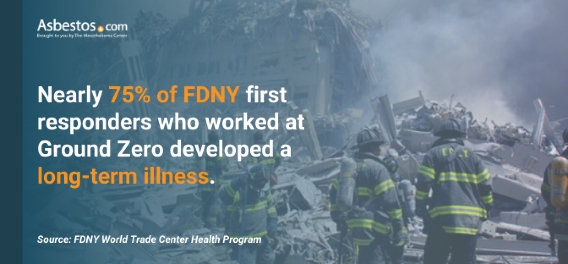
Cases Rise After 20-Year Latency Period
The WTC Health Program has identified related illnesses in more than 60,000 first responders since 9/11. However, mesothelioma and other asbestos-related diseases take several years to develop in the body after initial exposure. Health experts suspect these numbers will continue to rise.
On average, the time it takes for symptoms of mesothelioma to appear is 20 to 30 years. During that time, tumors progress slowly in the body, and many patients may not realize they have cancer until it is too late for aggressive treatment.
The first mesothelioma case linked to 9/11 occurred in 2006, and doctors didn’t diagnose the second patient until 2020. Now, as we approach 20 years from the tragedy, experts expect more cases of mesothelioma and other diseases with long latency periods to appear.
Kelly Brown’s husband was active in search and rescue efforts at Ground Zero, digging through rubble to save as many lives as possible in the days following the attack. Brown said her husband was known as “the mole” for his ability to dig tunnels through the debris.
“The lingering effects of 9/11 for firefighters and other first responders are mental, emotional and physical,” Brown said. She also said she feels these three components are essential for health, and she sees the toll it takes on everyone.
“The firefighters don’t like to talk about what they saw and experienced,” said Brown. “There are a lot of raw emotions surfacing, feelings of being forgotten. Deprioritized.” She said there are young firefighters now “chasing ghosts” – firefighters now serving who lost their firefighting fathers on 9/11.
Brown’s husband lives with a persistent cough and blood pressure issues. She has hope, but said she’s concerned for the future.
“My husband is okay now, but what might pop up?” she said.

